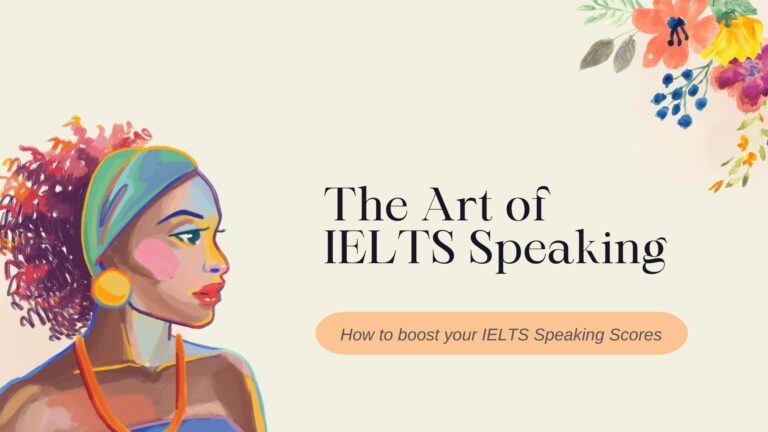
IELTS Speaking Part 1: A Beginner’s Guide
What is IELTS Speaking Part 1?
It’s an introductory part that helps the student become comfortable with the exam, teacher, and environment.
IELTS is usually taken by students from ESL (English as Second Language) countries, so they are often scared of the speaking test. It’s a one-to-one in-person speaking test that is sometimes conducted in a room or over a video call.
Read how to prepare and answer like a professional in IELTS Speaking Part 2: Cue Card. Click here.
Thus, the IELTS organization has made it fair so the students with the right mindset get all the fair advantage. This is why AI (Artificial Intelligence) is not deployed by the IETLS Org to score the exam.
Introduction to IELTS Speaking Part 1
IELTS Speaking Part 1 is the introductory part of the speaking test. It’s a casual conversation between you and the examiner, usually lasting 4-5 minutes. The examiner will ask you general questions about yourself, such as your job, studies, hobbies, daily routine, and travel experiences.
IELTS Speaking Part 1 generally starts from any of the 1 topics: Home, Hometown, Work/or Study. It’s a parameter set by the Cambridge University that conducts the IELTS exam.
How to Prepare for IELTS Speaking Part 1
-
Practice Speaking:
- Record Yourself: Regularly practice speaking English and record yourself to identify areas for improvement.
- Seek Feedback: Ask friends, family, or language teachers to provide feedback on your pronunciation, fluency, and vocabulary.
-
Expand Your Vocabulary:
- Learn Synonyms: Instead of repeating the same words, use synonyms to express your ideas in different ways. For example, instead of always saying “good,” use words like “excellent,” “fantastic,” or “wonderful.”
- Use Idioms and Phrasal Verbs: Incorporate idioms and phrasal verbs into your speech to sound more natural. For example, instead of saying “I like watching movies,” you could say “I’m a big movie buff.”
- Practice Pronunciation: Practice pronouncing words and phrases correctly to ensure clear communication.
-
Practice Answering Questions:
- Anticipate Questions: Think about common questions and practice answering them. For example, if you’re asked about your hobbies, you could talk about your favourite hobby, how long you’ve been doing it, and why you enjoy it.
- Give Detailed Answers: Provide detailed answers to show your language skills. For example, instead of saying “I like to read books,” you could say “I enjoy reading fantasy novels, especially the works of J.R.R. Tolkien.”
- Use a Variety of Sentence Structures: Use a mix of simple, compound, and complex sentences to make your speech more interesting and engaging.
Tips for a Successful IELTS Speaking Part 1
- Be Confident: Speak clearly and confidently, even if you’re nervous.
- Be Yourself: Be natural and authentic. Don’t try to be someone you’re not.
- Be Positive: Smile and maintain eye contact with the examiner.
- Be Prepared: Practice common topics and questions.
- Be Flexible: Be prepared to discuss unexpected topics.
The tips and tricks of IELTS Speaking 3 will make you fluent like an English medium school student. Click here.
Following these tips and practising regularly can improve your IELTS Speaking Part 1 skills and achieve a high score.









